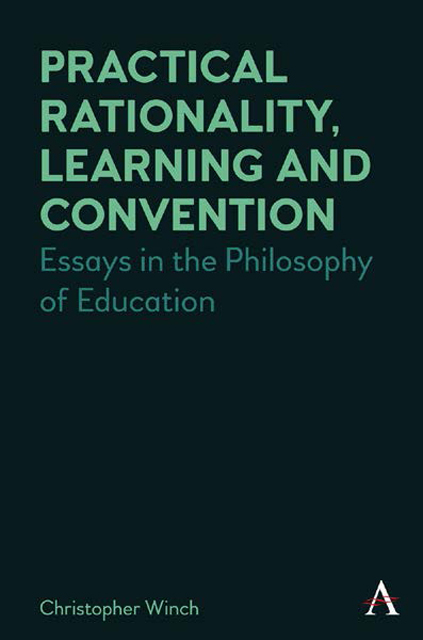Chapter Sixteen - Learning the Virtues at Work
Published online by Cambridge University Press: 09 December 2022
Summary
Introduction: Education beyond Schooling
If the development of character is one main aim of education, since, at its most general, education is preparation for life, how can it be fully developed at school, since character is at least partly formed by adult life, not school? If the development of character is a main aim, it is a conceptual truth that schooling and education cannot be coterminous. Education needs, in some sense, to be completed in the central areas of adult life. Since the life of most contemporary adults involves paid employment, it follows, for better or worse, that a large measure of their education, if it is to be completed, must be completed in the workplace. The experience of work will not only be part of a preparation for life, but a preparation for that kind of life as an employee or at least, someone in employment. This discussion assumes that the development of character is an important part of education. It is one thing to say that employment should be part of one's education, quite another to say that employment should be part of one's education for a life of employment. Many people would not have difficulty with the former claim, since it can be acknowledged that work can develop one's skills, understanding and character in a way that will be useful in other aspects of life. The latter claim, however, suggests that education in work should be, at least partly, education for work. If education is a preparation for a worthwhile life then this claim presupposes that work can be part of a worthwhile life. If, on the other hand, it cannot be shown that work in paid employment could ever be worthwhile in itself, then the stronger claim about work as an educational experience falls. So, to defend that latter claim one must make out the case for the potential worthwhileness of work in paid employment.
Another way to put this might be as follows. There are or can be aspects of employment that are instrumentally valuable as a preparation for a worthwhile life. There are also aspects that are intrinsically valuable, such as the development of aspects of character. These may often be the same aspects.
- Type
- Chapter
- Information
- Practical Rationality, Learning and ConventionEssays in the Philosophy of Education, pp. 227 - 240Publisher: Anthem PressPrint publication year: 2022



